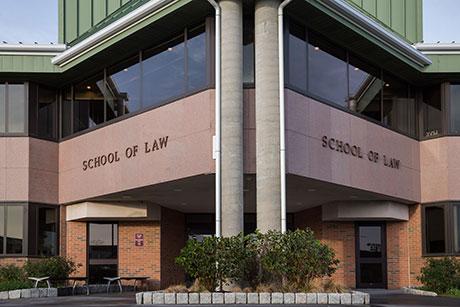Goldstein & Horwitz on 38 Studios Records
RWU Law professors draft an ACLU amicus brief backing Governor Raimondo’s petition for documents, stating “The people of Rhode Island have a right to know.”

Two Roger Williams University School of Law professors wrote an amicus brief that the ACLU of Rhode Island filed Wednesday to support Governor Raimondo’s petition for release of the 38 Studios grand jury records.
Professor Jared A. Goldstein and Professor Andrew Horwitz argued that while grand jury records are usually secret, the 38 Studios case – in which the state provided a $75-million loan guarantee for Curt Schillings’ ill-fated video-game venture -- represents exactly the kind of “exceptional circumstance” in which secrecy should not apply.
“Unlike a typical grand jury investigation involving allegations of private crime by private individuals, the investigation of 38 Studios addressed a matter of public policy of extraordinary importance that involved the decision by the state to invest $75 million in public funds,” Goldstein and Horwitz wrote. “In a well-functioning democracy, the people have a need to know how the state decides to spend public funds, and this need vastly outweighs any minimal interests in secrecy present here.”
The Rhode Island Superior Court is weighing whether to release the grand jury records, and the office of Attorney General Peter F. Kilmartin '97has objected to their release. In response to Kilmartin’s arguments, Goldstein and Horwitz said no one is claiming that grand jury records should be released “whenever” the public has an interest in grand jury proceedings. At issue, they say, is whether the 38 Studios probe represents the kind of exceptional case that should overcome the ordinary principle of grand jury secrecy, and they say answer is clear.
“Because it is their money at stake, the people of Rhode Island have a fundamental right to know how the decisions involving 38 Studios were made,” they wrote. “Unless they know how these decisions were made, the people of Rhode Island cannot take corrective action to prevent similar decisions in the future.”
While Kilmartin suggests disclosure might be appropriate in the future after all witnesses are dead, the RWU law professors say: “Rhode Islanders need to understand today what went wrong with 38 Studios so that they can properly oversee state government, prevent future abuses and avoid a recurrence of the mistakes that were recently made. It is not enough that our grandchildren may someday understand what happened. For representative democracy to work, Rhode Islanders need to know now what led public officials to make crucial decisions on how to spend the state’s money.”
The 38 Studios investigation involved interviews with former Governor Donald L. Carcieri, former Economic Development Corporation staff, members of the EDC board and almost every member of the 2010 General Assembly, Goldstein and Horwitz noted. “Rhode Island taxpayers have a right to know how these officials explained the decision to spend $75 million of their tax money on 38 Studios,” they wrote.
Courts have ordered the release of grand jury records in other cases in which the public has a overriding right to know, Goldstein and Horwitz said. They cited the release of President Richard Nixon’s testimony before the Watergate grand jury and, closer to home, the release of grand jury records related to the 2003 Station nightclub fire.
Goldstein and Horwitz emphasized that the strongest protection against government corruption and abuse of power comes not from laws or government institutions but from a well-informed electorate that keeps a close eye on its government.
“The need to keep the public informed about what its government is doing is at the heart of representative democracy,” they stated. “As James Madison wrote: ‘A popular government without popular information, or the means of acquiring it, is but a prologue to a farce or a tragedy; or perhaps both. Knowledge will forever govern ignorance. And a people who mean to be their own governors, must arm themselves with the power which knowledge gives.”
Goldstein noted, "This case is about preventing misuse of government power. The people of Rhode Island can only stop the State from abusing power if they know how disasters like 38 Studios happened." ACLU of RI executive director Steven Brown added: "Many questions still swirl around the 38 Studios fiasco. The grand jury documents may not answer all of them, but their release will help bring some finality to this unfortunate chapter in Rhode Island’s history."
A copy of the amicus brief is available here.
